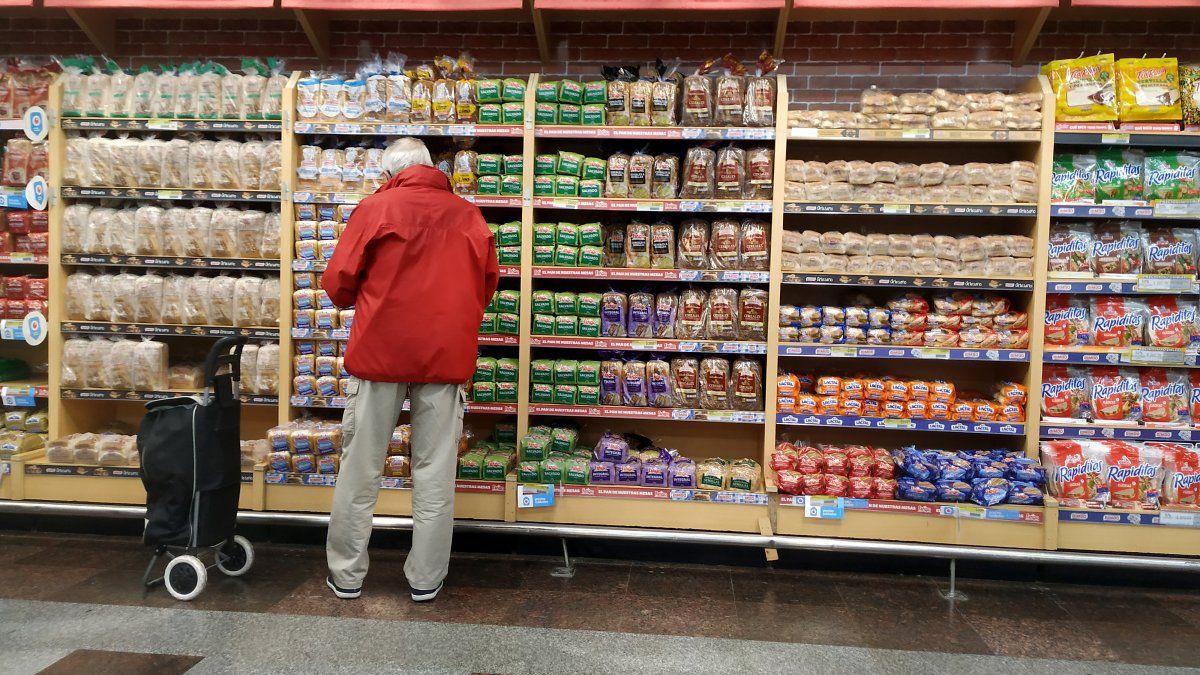However, the volatility that exhibited the alternative dollars in recent days, with an even greater increase in the gap, coupled with restrictions on imports imposed by the Central last week, may have a impact on the evolution of prices during the next few weeks. This was explained by different analysts consulted.
“I believe that last week’s measure taken by the Central Bank, to restrict dollars for importers, in itself was going to have an inflationary effect. Because it implied that there were people who were not going to be able to pay, because they did not have quick access to the market, or if they had to bring the products anyway, they were going to pay the gap in some way,” Camilo Tiscornia, director of C&T Consultores, told Ámbito.
The untimely departure of Martín Guzmán added, to this scenario, one more degree of uncertainty. “What has happened since the weekend, with the change of minister, is that this gap has widened. I would say that this trend, which already started last week, would be accentuated”, maintained Tiscornia, who in any case remarked: “We have to see how this is reflected in prices. At the moment, we do not detect too much in what we are revealing. Although, obviously, one hears that there are products that are not being sold, there must be shortages. It will be necessary to see, when the products appear again, if there is a jump there. Which is very likely to happen.”
“But we are also going to see how long this moment of volatility lasts in the blue dollar and the liquidation cash, at such high prices. It will depend a lot on expectations, how they are going to get on track and what the new minister says. But for now, I would say that if this continues, unfortunately, it is going to end up being more inflationary.”, added the economist.
Damián Di Pace, director of the consulting firm Focus Market, also focused on restrictions on imports as a factor that would drive prices up in the short term: “What we are seeing in the market is not only due to the rise in alternative dollars. It is due to the restriction of access to the MULC to the official dollar. So, now, the expectation of the companies is that they do not have access to the MULC to access the means to import the supplies that were being imported, they changed them from automatic to non-automatic licenses, so now they do have to be governed by the price of the parallel dollar.
“Then, they have no possibility of present stock and have a lot of volatility with respect to future price value, because with such an oscillating movement of the foreign exchange market as we are seeing, it is not known if the price that is set is right or wrong. That is why, either operations are stopped or a ‘stress’ price is set. That what is happening. The companies or shops say: ‘I’ll sell it to you, but at such a price’. And if not, they don’t sell it,” said Di Pace, who added: “So, today there is no price in the market and this is due to a double situation: due to the restriction on imports last week, added to the movement in the exchange market of the financial dollar that implies a dollar higher than the previous stage to replenish that stock”.
Noodles Inflation Inflation Prices care Supermarket CPI Prices Basic Food Basket
Consultants estimate that inflation will exceed 70% this year
Ignatius Petunichi
Analysis
For his part, Eugenio Marí, Chief Economist of the Fundación Libertad y Progreso, stated that “The rise in alternative dollars these days actually reflects another even more worrying phenomenon, which is the distrust of Argentines in the peso and in the assets in the local financial system”. “Basically, the market is discounting a greater probability that the loss of the value of the peso will accelerate and that the Government will not effectively comply with its debt commitments. Hence the drop we see in assets in pesos,” said Marí.
“If we add to this a Central Bank that issued more than $1 trillion in June, it is a recipe for inflationary acceleration,” remarked the economist, who pointed to the future: “It will be essential for the Government to give a signal towards balance to prevent the expectations of Argentines from becoming unanchored and that the process of falling demand for pesos accelerates. Otherwise, we will see ever higher levels of inflation.”
Martín Calveira, a researcher at the IAE Business School, analyzed for his part the effects that Guzmán’s surprise departure may have on the macro: “A higher level of uncertainty, at all times and places, brings with it a review of economic decisions, that is, consumption and, mainly, investment. This is accentuated in economies with price distortions, inconsistencies in macroeconomic variables and persistent inflation. For this reason, the unexpected departure of the former Minister of Economy, revealing greater tensions in the political space of the government, generated overreactions in the prices of the economy such as the exchange rate and the values of securities listed abroad.
In this sense, the analyst remarked: “Probably, we are facing a context of greater permeability for a higher level of inflationary inertia and price remarks given the uncertainty. In fact, the first business day was marked by suspensions of operations and, at the retail level, there were no prices of goods and dollars”.
Source: Ambito
David William is a talented author who has made a name for himself in the world of writing. He is a professional author who writes on a wide range of topics, from general interest to opinion news. David is currently working as a writer at 24 hours worlds where he brings his unique perspective and in-depth research to his articles, making them both informative and engaging.




